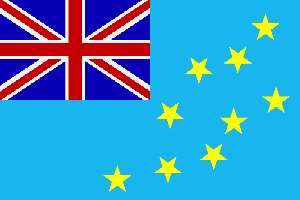
FUNAFUTI: The Tuvalu government has defended its controversial use of the Public Order Act earlier this month, claiming that the unprecedented ban on political rallies was taken in response to a threatening letter to a cabinet minister.
A regional media monitoring group said that the first use of the law to impose “an historic 14-day ban on public meetings” would have “trickle down impacts on free speech and free expression” in the country.
Pacific Media Freedom Forum said: “The 1973 ordinance has never been used --until now. It was applied in the wake of a public protest march demanding the resignation from government of the Finance Minister Lotoala Metia on January 13.
In a press release in response to the PFF, the Tuvalu government clarified the controversy by saying it recognised the “importance of the Bill of Rights of its people enshrined in the Constitution”, including the freedom of assembly and expression.
“Similarly the government of Tuvalu also recognises that these rights are not absolute and that the same Constitution also provides that those rights are subject to national interests and laws that are legislated to safeguard those national interests which includes among others is ‘public order’ are exceptions to the exercise of those rights,” the government release said.
“It is true that the 1973 Public Order Act relevant provisions [have] never been used since Tuvalu’s Independence in 1978.
“According to the Prime Minister who was a police officer by profession for almost thirty years, of which 13 years [he] served as the Commissioner of Police, confirmed that during his term of office for those years never come across any written threats to cause the activation of the public order provisions for the maintenance of law and order in the community.
“During those days the people have the trust and respect for the rights of others.
“The public order [ordinance] that was signed by the Prime Minister on January 13 was not invoked because of the unlawful procession that was taken place on the 12 January 2011.
“That is a different issue that is now being investigated by the police. It was the threatening letter that was addressed to the MP in question with copies to other island chiefs, MPs and the Governor-General, formed the basis to issue that Order.
“The threats conveyed in that letter emphasises the fact that the MP must resign by 4pm on that particular day or failure to comply will result in the community of Nukufetau to do all it could to fulfill that demand.
The traditional chief, his secretary and the head of the local government of Nukufetau have to sail 6 to 8 hours by ship to the capital Funafuti at the invitation of the people of Nukufetau on the capital to force the MP to resign. The members of the Opposition, except one, were often seen [to meet] in private with the leaders of Nukufetau and the same MPs did joined the procession to support the cause of the Nukufetau people.
“Attempts to topple the government include the submission by the five MPs for the dissolution of Parliament, knowing very well that the government of the day has the majority of the total membership of the house of Parliament.
“The non-stop strategies employed by the opposition MPs to explore opportunities to take over government are obvious. The first attempt came around in the evening of the same day. The motion of no confidence was passed in Parliament when a directive was conveyed by fax from Nukufetau for Hon. Enele Sopoaga to support Hon. Lotoatala Metia in the former’s group to be a candidate for nomination to be the Prime Minister. “The attempt was twisted around when Hon. Sopoaga approached Hon. Metia the following day to support his candidature to the position of Prime Minister as his nomination had already been submitted by the group.
“Interesting to see that the group that all signed a joint letter to Nukufetau after the general election for the removal of Hon. Metia are seen to forget their demand and are now asking for the support of Hon. Metia, the latter who brought the motion of no confidence that was successfully passed in Parliament.
“The chief of Nukufetau wrote three letters, including one addressed to the Governor-General announcing the non recognition of Hon. Metia as an MP for Nukufetau. The Chief and his people were so strong in the belief that they could do this under traditions and customs despite the fact that the Governor-General had already advised them that the constitution of Tuvalu is the only law that regulates the vacation of seat by an MP.
“The Parliament of Tuvalu, its membership and related matters are governed by the Constitution of Tuvalu but not under traditions and customs. So, it is sad to see that the people of Nukufetau have been blindly led by their leaders to fight for their rights that do not exist nor supported by the Constitution or laws of Tuvalu.
“The government recognises and value the traditions and customs of Tuvalu but not to the extent that it will bring about inconsistencies to the highest laws of the country, the Constitution.” - PIJO/Pacific Media Watch



